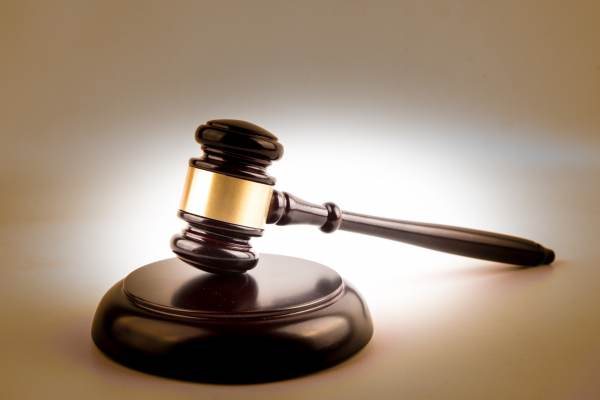Business
Colorado Lawyer Suspended for Submitting Fake Cases Found by AI


Officials have issued a 90-day suspension for a Colorado lawyer after he submitted a motion to court that cited fake case law found through the AI platform, ChatGPT. The lawyer, Zachariah C. Crabill, failed to read the cases or verify their accuracy, resulting in the use of incorrect or fictitious citations. Crabill was hired by a client to prepare a motion in a civil case, but later discovered that the cases provided by ChatGPT were fake. He falsely attributed the mistakes to a legal intern when the judge expressed concerns about the accuracy of the cases. This violation of a legal requirement to competently represent a client led to Crabill's suspension.
AI-Generated Fake Cases: A Growing Concern
This incident is not the first time that AI-generated fake cases have caused problems in the legal system. Just a few months ago, a judge in Manhattan discovered that a filing in federal court had been doctored by AI and contained bogus information. The use of artificial intelligence in legal proceedings has been advancing rapidly, leading experts to call for a pause in its development. The potential for fabricated cases and citations raises serious concerns about the reliability and accuracy of AI-generated legal research.
Another Lawyer Admits to Using AI for Fabricated Cases
A lawyer from a respected Tribeca firm, Steven Schwartz of Levidow, Levidow & Oberman, recently admitted to using an AI chatbot, ChatGPT, to help him write a filing. However, the AI ended up fabricating the entire filing, including the cited cases. The dispute involved a case filed by Schwartz's partner against Avianca airlines on behalf of a client who claimed an injury from a metal serving cart. The brief filed by Schwartz supposedly cited relevant cases, but they were all fabricated by ChatGPT.
Concerns About the Future of AI in the Legal Field
The incidents involving AI-generated fake cases highlight the need for caution and accountability when using artificial intelligence in legal proceedings. As AI technology continues to advance, experts warn that its development should be paused to address the potential risks and ensure the accuracy and reliability of AI-generated research. The legal field must carefully navigate the use of AI to avoid further mishaps and uphold the principles of competence and representation for clients.


Hello, I’m Timothy Robinson, News Editor at NewsRoomFeed.com, where I turn the world’s chaos into digestible stories. Blessed with a journalism degree from UNT, I’ve been molding minds and spreading knowledge from the tranquil setting of Denver, CO.
My days are spent in the throes of international affairs, political commentary, and local happenings, but when the laptop closes, you’ll see a completely different side of me. I’m an avid tennis player and cycling enthusiast. I never shy away from a good adventure. My Labrador, Rocky, is always by my side as we explore the great outdoors of Colorado.
Traveling is my stimulant. It’s my way of stepping into new narratives, experiencing different cultures, and appreciating the beautiful tapestry of life. Each new place I visit fuels my creativity and broadens my perspective, which I pour back into my work at NewsRoomFeed.
When I’m not on the road with Rocky or lost in a gripping news story, you’ll find me on the tennis court or cycling around Denver. These hobbies keep me grounded and offer a refreshing escape from the digital universe.
I believe in creating a balance between the hustle of work and the peace in nature. So, if you’re looking for a fresh take on news, a travel companion, or an opponent on the tennis court, don’t hesitate to connect. Let’s turn the page on the ordinary and dive into the extraordinary!
















